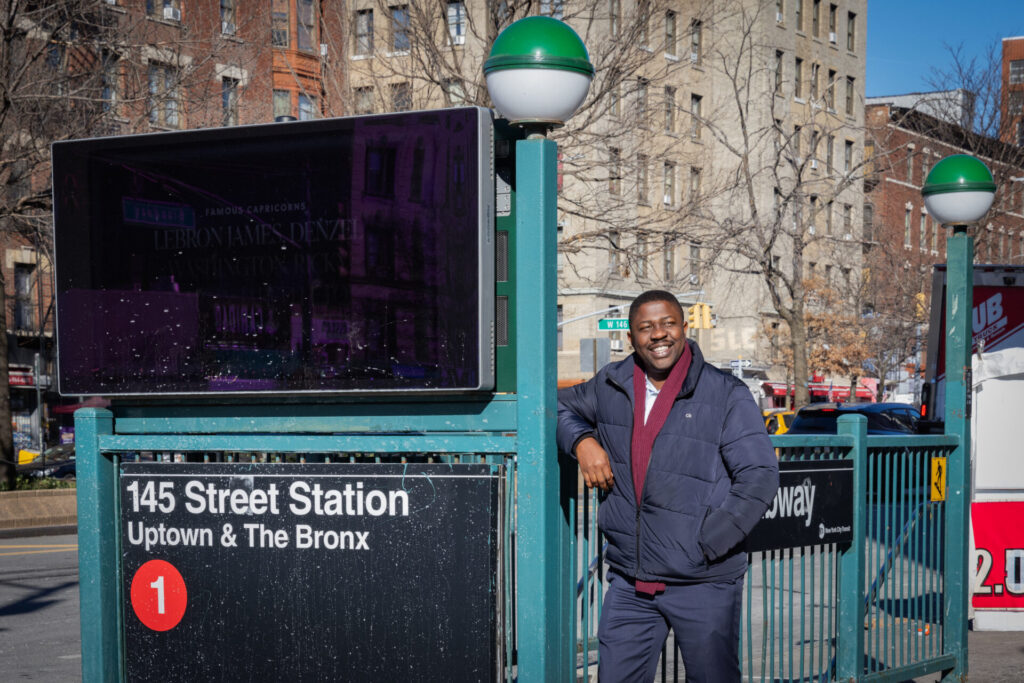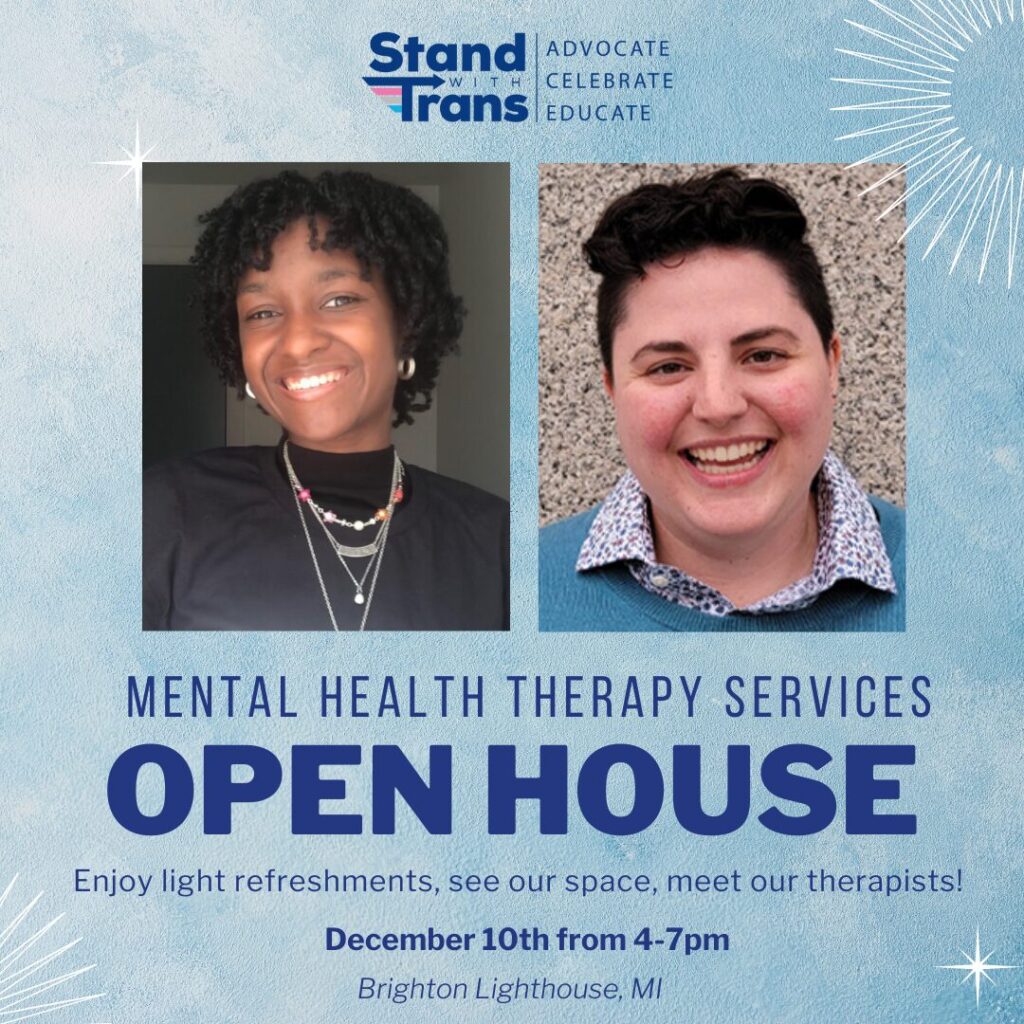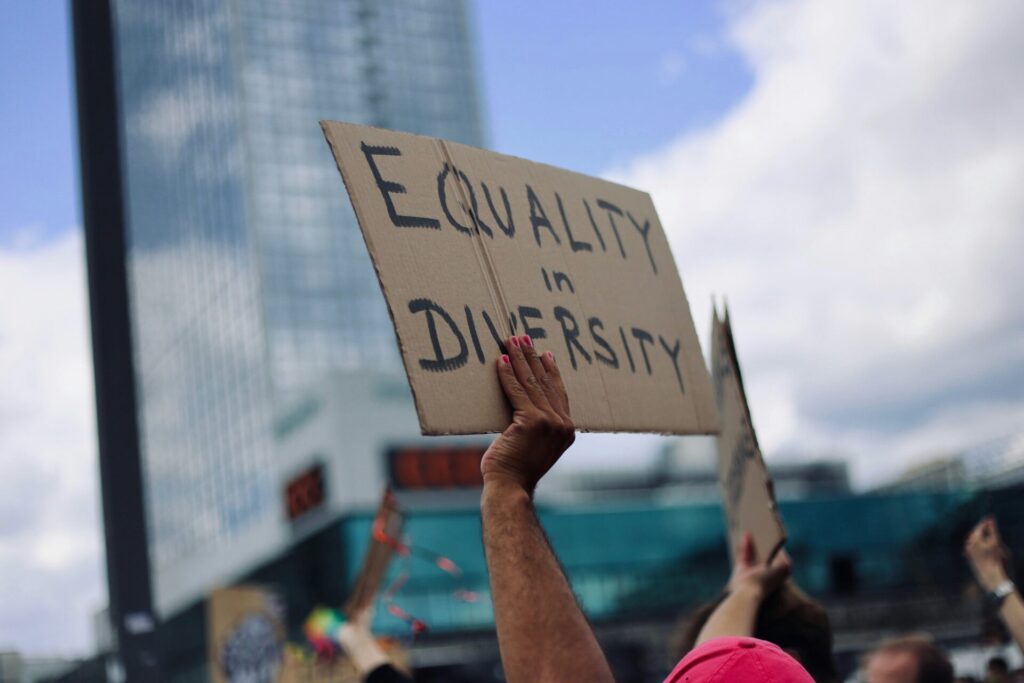LGBTQ advocates known as GLAAD Media Institute (GMI) Alumni are sharing their action plans for 2025 and beyond.
At the top of their minds are transgender equality, immigration, racial and healthcare justice, and affordability as each prepares for a second Trump term. From New York City to Georgia and Michigan, these GMI alums are activating ahead of a political cycle and congressional session unlike anything we have seen before.
As part of its education and advocacy programming across the country, the GLAAD Media Institute – GLAAD’s training, research and consulting division – convened meetings with local leaders and community advocates throughout the nation. Attendees who complete a program or session with the GLAAD Media Institute are immediately deemed GLAAD Media Institute Alumni, who are equipped to maximize community impact by leveraging their own story for culture change.
GLAAD Media Institute Alum Edafe Okporo is a multidisciplinary artist and speaker, and gay asylum seeker from Warri, Nigeria. Having been able to seek refuge in the US, Okporo has lent his brilliance to immigration, asylum seeking advocacy in the state of New York leading to his memoir and manifesto ASYLUM: A Memoir & Manifesto.

In the new year, Okporo is looking to change the political landscape in New York by running for District 7’s City Council seat. His focus is steadfast on LGBTQ immigration safety and integrity, healthcare access, affordability, and resisting over policing and surveillance.
Okporo opened his interview with GLAAD by pointing to the conditions of poverty in New York, and the conditions of LGBTQ populations within and outside the immigration system. Conditions in which Okporo says will become increasingly “sub optimal” under Trump.
“I’m tired of allowing inefficient leadership to continually lead on the issues of race and class and fighting for affordability, so I decided to run for city council,” Okporo told GLAAD. The candidate says he can offer voters “transparent leadership that puts people first, that is firm and independent of the political establishment” that, he says, often ignores the plight of everyday people.
After overcoming homelessness as a refugee, Okporo went on to lead New York’s first shelter for asylum seekers, earned a graduate degree from NYU, and then began his political career advocating for the Dignity Not Detention Act, which would keep New York out of the business of detaining immigrants.
“I’m very excited for this upcoming year because my candidacy for City Council is historic,” Okporo shared with a smile. “When grassroots candidates like myself come out, we are shaking up the status quo.”
“I lost my country, Nigeria, because I stood against a law that was criminalizing [LGBTQ] people like me,” Okporo continued. “I know, if elected to City Council, I will be fighting for New Yorkers.”
Okporo says there is some light at the end of the tunnel.
For example, he praised the passing of Prop 1, or the Equal Rights Amendment, in NYC’s 2024 elections. However, he stresses the fact that the police surveillance the LGBTQ community is facing is too what migrant communities face. Not only that, there is lack of transparency over police surveillance technologies and how their spyware is used, especially against people of color and protesters, according to Brennan Center for Justice.
“This is going to be a very difficult time in the next four years because we have a regime of people who are coming into government to destabilize the systems that have traditionally provided air for these communities,” Okporo continued.
Most recently, the US Senate has voted in favor of the National Defense Authorization Act (NDAA), a federal bill that contains a dangerous and discriminatory provision targeting the trans dependents of military service members and retirees and their essential health care.
Read More: Election 2024: Exposing Project 2025, Statement in Response to National Defense Authorization Act, Trump’s Nominees on the Record on LGBTQ Issues
Members of the trans community feel the sting of these decisions by politicians that would have fought anti-trans provisions in the past, knowing more is on the way from Trump who vows to erase transgender people from the country. Post-election, The Trevor Project saw an overall crisis call volume increase of nearly 700% on November 6, compared to the weeks prior, according to their call volume data.
GLAAD Media Institute Alum and Miss Trans Georgia of 2024 Amore Disaya Sierra Cano said it’s time to fight.
“As we face [these] challenges to our values and basic human rights in the years ahead, let us never forget the power we hold to defend ourselves and stand against injustice. Now, more than ever, we must unite to protect not only ourselves and each other, but most importantly, our youth. They deserve a future free from fear and oppression,” Cano told GLAAD.
Like Okporo, Cano says it’s the responsibility of today’s LGBTQ populations to take on the battles of those who came before us.
View this post on Instagram
Which is why, in Michigan, GLAAD Media Institute Alumni at Stand With Trans, a “nonprofit organization dedicated to empowering and supporting transgender youth and their families,” ahead of Inauguration Day, have implemented their mental health services across the state of Michigan.
Daily Andrews, director of clinical services at the Michigan nonprofit Stand With Trans, tells GLAAD that working with trans populations is a priority in their career. They began part of their journey at the Pediatric Gender Center at St. Louis Children’s Hospital in Missouri, where Andrews was a case manager and social worker for families going through both social and medical transition. But when an opportunity to move to Michigan became available, Andrews was excited to go their own way.
Roz Keith – GLAAD Media Institute alum and founder of Stand With Trans – and Andrews spent many hours trying to figure out the best way to manifest a program in 2025 that provides care for trans people in the Great Lake State.
Andrews accepted the challenge of building the clinical program for trans youth, but the hope is to “build it big enough” so that the program is sustainable on its own.
“So it’s me and [Therapist Jasmine Ionie Hobson]. I’m a full-time therapist, so we’re very, very small, but we are excited to grow in the future,” Andrews said. “We are currently seeing ages nine and up, that’s where our specialties fall.”

One thing to keep in mind, says Andrews, is that they don’t just see LGBTQ people. “We see anyone that has any need, anyone that needs mental health care or a therapist.”
Some clients could be allies, kids with trans siblings, and others who need comprehensively inclusive therapy. However, youth who developmentally explore their gender, need the guidance, and mental health wellness that Stand with Trans is offering, according to reports.
Of Michigan respondents, “79% of those who were out or perceived as transgender at some point between Kindergarten and Grade 12 (K–12) experienced some form of mistreatment, such as being verbally harassed, prohibited from dressing according to their gender identity, disciplined more harshly, or physically or sexually assaulted because people thought they were transgender,” according to US Trans Survey Data’s Michigan Report.
Andrews says that many trans people aren’t given the proper tools, or had to learn as adults, so the fact that they get to play a part in helping guide a younger generation through their gender experiences is “amazing.”
“We’re here, we’re not going anywhere, and we are here to give the community hope, that even in the amount of immense pressure, or political craziness, that we can still provide a refuge for people and community for people,” Andrews said. “I think that’s what makes this work so important, especially going into the next couple years.
To learn more about Stand With Trans’s mental health therapy service go to their website. To activate alongside Stand With Trans go here, and to read Okporo’s book ASYLUM: A Memoir & Manifesto go to his website.
More on the GLAAD Media Institute: The GLAAD Media Institute provides training, consultation, and actionable research to develop an army of social justice ambassadors for all marginalized communities to champion acceptance and amplify media impact. Using the best practices, tools, and techniques we’ve perfected over the past 30 years, the GLAAD Media Institute turns education into armor for today’s culture war—transforming individuals into compelling storytellers, media-savvy navigators, and mighty ambassadors whose voices break through the noise and incite real change. Activate with the GLAAD Media Institute now at glaad.org/institute













